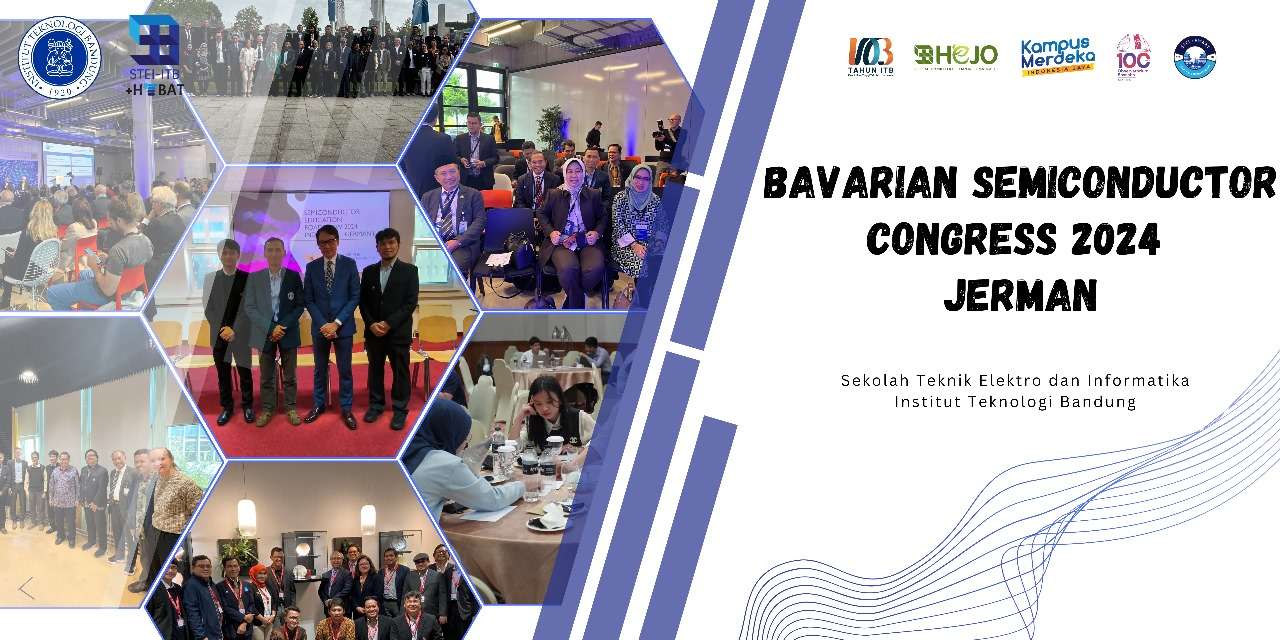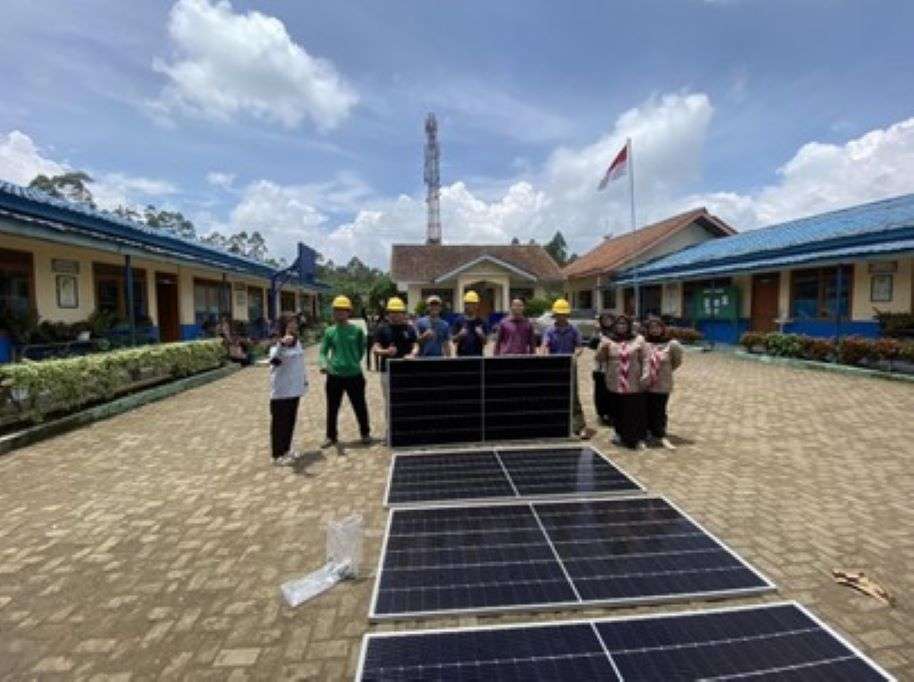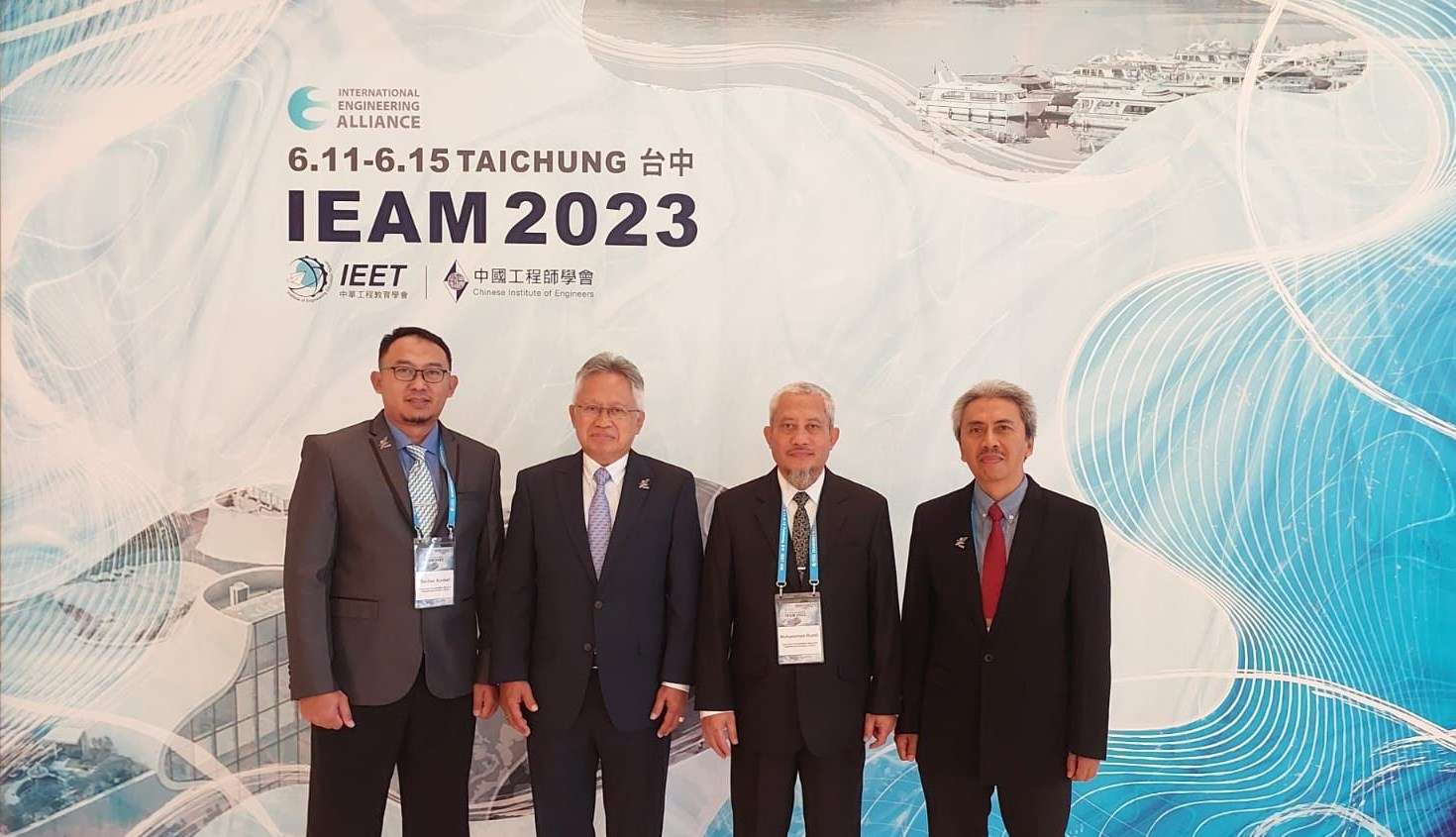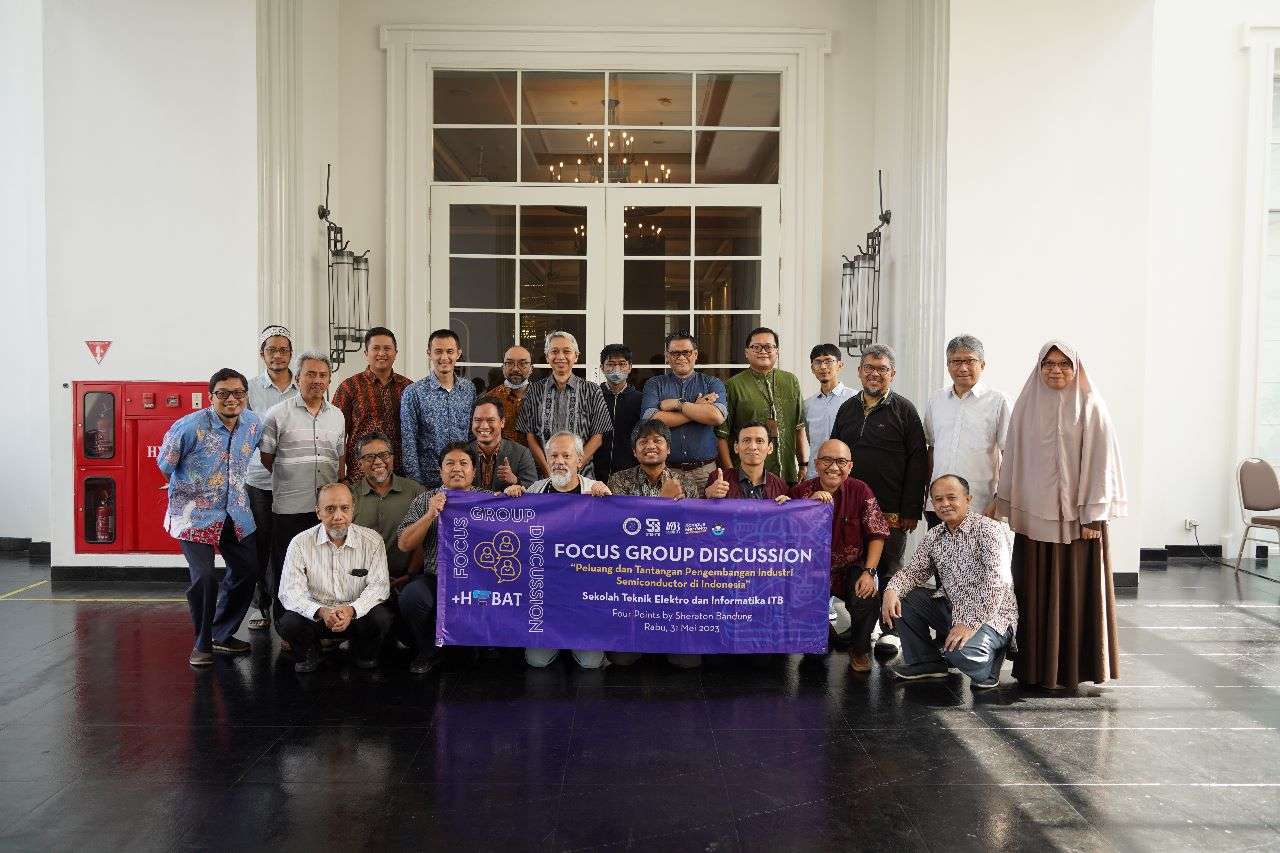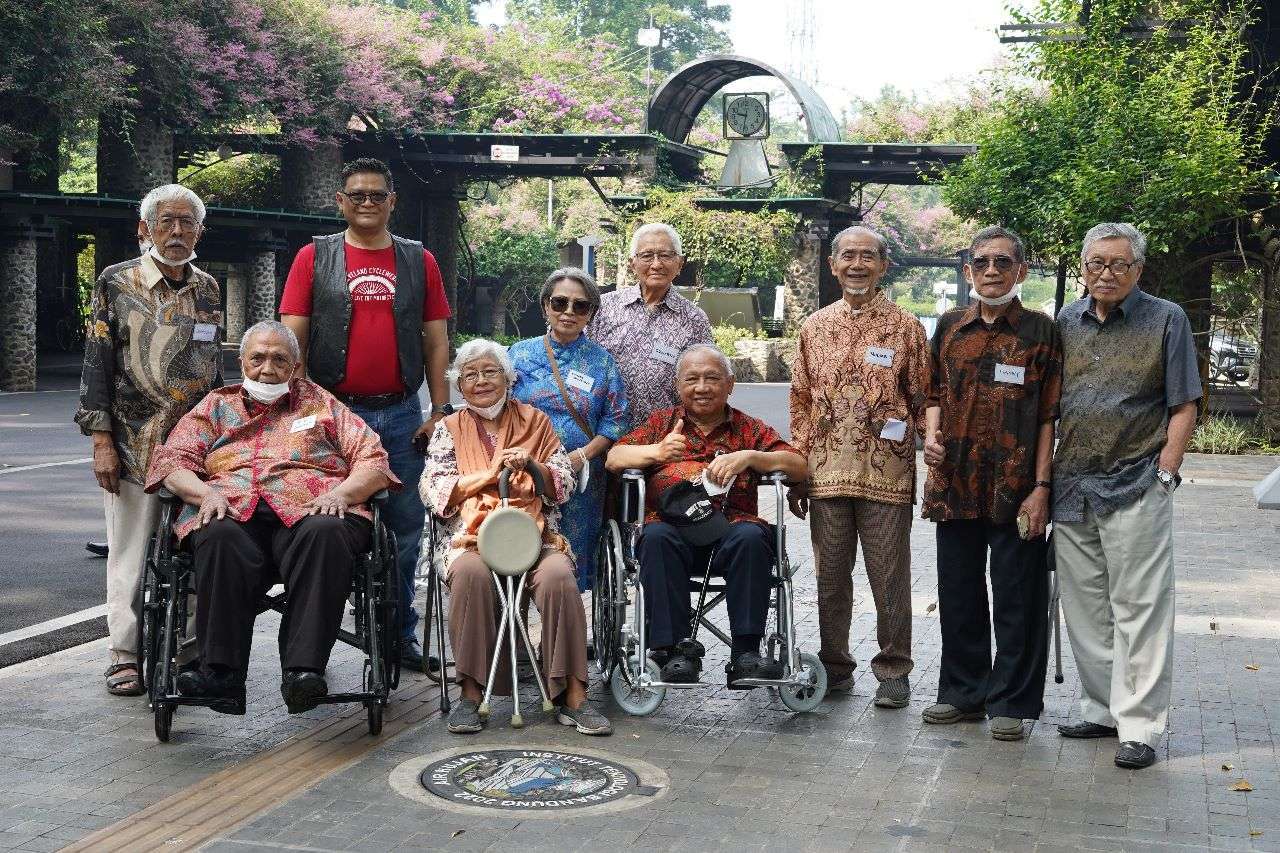Undergraduate Program in Electrical Power Engineering
The Electrical Power Engineering Study Program provides education in the fields of power generation, transmission, and utilization of electrical energy. This program offers students fundamental knowledge of electrical power engineering principles, along with supporting knowledge in mathematics, science, computing, and essential engineering skills. Students are given the opportunity to develop their ability to formulate, analyze, and solve complex problems and to design a product or system based on real-world issues, particularly in the field of electrical power engineering.
This program provides sufficient breadth and depth for undergraduate and postgraduate studies, equipping graduates for success, lifelong learning programs, and a solid foundation to actively contribute to the development of electrical power engineering and related industries in Indonesia and abroad. It also fosters an appreciation for the range of issues encountered in professional practice, including teamwork, leadership, safety, ethics, service, economics, environmental awareness, and professional organizations.
Developments in the field of electrical power engineering have advanced rapidly over the past few decades, driven in part by the increasing importance of electricity in modern life. It can be said that human activities are becoming inseparable from electrical power. However, on the other hand, primary energy sources are becoming more expensive, creating a need to develop technology that enables efficient conversion of primary energy into electricity.
As a result of increased efficiency, knowledge and technology in the field of electrical power engineering have also developed rapidly. Similarly, advancements in power electronics technology, particularly with the development of control components and hardware in power electronics, have spurred research and the development of more reliable and effective energy conservation concepts.
Meanwhile, in the management of electrical energy and the operation of current and future power systems, information and computer technology are increasingly evident and absolutely necessary. Modern power system operations require Real-Time Computers to assist operators in managing the electrical power system. Supervisory Control and Data Acquisition (SCADA) systems have become indispensable tools in large-scale power systems. The SCADA technology is currently developing rapidly, leading toward Automated Substations and Open System technologies. Hardware and software for SCADA systems, which were previously produced solely by Power System Equipment manufacturers, are now widely available from Software Houses and Remote Terminal Unit manufacturers based on Personal Computers. In this context, graduates working in the electrical power sector should be able to communicate effectively with computer engineering graduates.
Education Objectives
• Lulusan akan memiliki karir yang sukses dalam profesinya di bidang teknik tenaga listrik atau bidang yang terkait.
• Lulusan akan berhasil menempuh studi pascasarjana atau terlibat dalam pengembangan profesional.
• Lulusan akan menunjukkan kepemimpinan dan berperan aktif dalam memajukan komunitasnya.
Learning Outcomes
• Kemampuan untuk mengidentifikasi, memformulasikan dan memecahkan masalah-masalah kerekayasaan yang kompleks dengan mengaplikasikan prinsip-prinsip kerekayasaan, sains, dan matematika
• Kemampuan mengaplikasikan desain rekayasa untuk menghasilkan solusi yang memenuhi kebutuhan-kebutuhan tertentu dengan pertimbangan faktor kesehatan masyarakat, keselamatan, dan kesejahteraan, serta faktor global, budaya, sosial, lingkungan, dan ekonomi
• Kemampuan untuk berkomunikasi secara efektif pada berbagai macam situasi
• Kemampuan untuk mengenali tanggung jawab profesional dan etika dalam situasi kerekayasaan dan melakukan penilaian berdasarkan informasi yang tersedia, dimana harus mempertimbangkan dampak solusi kerekayasaan dalam konteks global, ekonomi, lingkungan, dan sosial
• Kemampuan untuk bekerjasama secara efektif pada tim yang anggotanya bersama-sama menerapkan nilai kepemimpinan, menciptakan lingkungan yang kolaboratif dan inklusif, menetapkan tujuan, merencanakan tugas, dan mencapai tujuan
• Kemampuan untuk mengembangkan dan melakukan eksperimen yang sesuai, menganalisis dan menafsirkan data, dan melakukan penilaian berdasarkan kerekayasaan untuk menarik kesimpulan
• Kemampuan untuk memperoleh dan menerapkan pengetahuan baru sesuai kebutuhan dengan menggunakan strategi pembelajaran yang tepat
Curriculum
| No | Code | Course | Credits |
|---|---|---|---|
| 1 | FI1101 | Fisika Dasar I | 3 |
| 2 | KI1101 | Kimia Dasar I | 3 |
| 3 | MA1101 | Matematika I | 4 |
| 4 | WI1101 | Pancasila | 2 |
| 5 | WI1102 | Berpikir Komputasional | 2 |
| 6 | WI1103 | Pengantar Prinsip Keberlanjutan | 2 |
| 7 | WI1111 | Laboratorium Fisika Dasar | 1 |
| 8 | WI1112 | Laboratorium Kimia Dasar | 1 |
| Credit Total | 18 | ||
| No | Code | Course | Credits |
|---|---|---|---|
| 1 | BI1011 | Biologi A | 2 |
| 2 | EL1200 | Pengantar Analisis Rangkaian | 2 |
| 3 | EP1209 | Dasar Pemrograman | 2 |
| 4 | MA1201 | Matematika IIA (Sains dan Rekayasa) | 4 |
| 5 | WI2001 | Pengenalan Rekayasa dan Desain | 3 |
| 6 | WI2002 | Literasi Data dan Inteligensi Artifisial | 2 |
| 7 | WI2003 | Olah Raga | 1 |
| 8 | WI2005 | Bahasa Indonesia | 2 |
| Credit Total | 18 | ||
| No | Code | Course | Credits |
|---|---|---|---|
| 1 | EL2001 | Rangkaian Elektrik | 4 |
| 2 | EL2101 | Praktikum Rangkaian Elektrik | 1 |
| 3 | EL2150 | Sistem Digital dan Mikroprosesor | 3 |
| 4 | EP2001 | Probabilitas dan Statistika | 3 |
| 5 | MA2072 | Matematika Rekayasa IA | 3 |
| 6 | MS2060 | Rekayasa Termal | 2 |
| 7 | WI2004 | Bahasa Inggris | 2 |
| Credit Total | 18 | ||
| No | Code | Course | Credits |
|---|---|---|---|
| 1 | EP2002 | Sinyal & Sistem | 3 |
| 2 | EP2003 | Elektromagnetika | 3 |
| 3 | EP2004 | Sistem Pengukuran | 3 |
| 4 | EP2005 | Komputasi dan Analisis Numerik | 3 |
| 5 | EP2201 | Praktikum Tenaga Listrik I | 1 |
| 6 | MA2074 | Matematika Rekayasa IIA | 3 |
| 7 | WI2006 | Kewarganegaraan | 2 |
| 8 | WI201X | Agama | 2 |
| Credit Total | 20 | ||
| No | Code | Course | Credits |
|---|---|---|---|
| 1 | EL3015 | Sistem Kendali | 3 |
| 2 | EP3001 | Mesin-Mesin Listrik | 3 |
| 3 | EP3002 | Analisis Sistem Tenaga | 3 |
| 4 | EP3003 | Material Elektroteknik | 2 |
| 5 | EP3101 | Praktikum Tenaga Listrik II | 2 |
| 6 | TI3004 | Ekonomi Teknik | 2 |
| 7 | WI2022 | Manajemen Proyek | 2 |
| Credit Total | 17 | ||
| No | Code | Course | Credits |
|---|---|---|---|
| 1 | EP3004 | Elektronika Daya | 3 |
| 2 | EP3005 | Teknik Tegangan Tinggi | 3 |
| 3 | EP3006 | Proteksi Sistem Tenaga | 3 |
| 4 | EP3007 | Pembangkit Tenaga Listrik | 3 |
| 5 | EP3008 | Sistem Energi Cerdas | 2 |
| 6 | EP3009 | Pemanfaatan Energi Listrik | 2 |
| 7 | EP3201 | Praktikum Tenaga Listrik III | 2 |
| Credit Total | 18 | ||
| No | Code | Course | Credits |
|---|---|---|---|
| 1 | EP4001 | Kerja Praktik | 2 |
| 2 | EP4002 | Proposal Perancangan dan Seminar | 2 |
| Credit Total | 4 | ||
| No | Code | Course | Credits |
|---|---|---|---|
| 1 | EP4003 | Tugas Akhir Perancangan | 4 |
| Credit Total | 4 | ||
Penjelasan detail untuk masing – masing Mata Kuliah dapat diakses melalui link berikut : https://akademik.itb.ac.id/id/program/S1/program-studi/180
Specialization
Minor
Program Sarjana Internasional
International Undergraduate Program (IUP) di Institut Teknologi Bandung (ITB) memberikan pengalaman pendidikan bertaraf internasional melalui kurikulum global dan kesempatan mengikuti kegiatan akademik di universitas mitra luar negeri pada tahun keempat perkuliahan. Informasi lengkap mengenai persyaratan, mekanisme seleksi, serta tata cara pendaftaran dapat diakses melalui laman resmi Admission ITB: https://admission.itb.ac.id/info/international-undergraduate-program/
Career Prospect
Graduates of the Electrical Power Engineering Study Program will have opportunities to develop professional careers as power system planning engineers, operations and maintenance engineers, utility management professionals, design engineers, marketing engineers in the field of electrical power engineering, educators in electrical power engineering, and professional trainers in various organizations and companies.
These institutions or companies include: electric utility companies (such as PT PLN (Persero) or similar companies abroad), power generation companies, power transmission companies, electric power distribution companies, electricity market authorities (government), industries that operate electrical networks such as private and government oil and mining companies, application services, consulting services, large contractors, research and development institutions, higher education institutions and training providers, as well as other related industries and institutions.
Pedoman Perkuliahan
Pedoman untuk perkuliahan Kerja Praktik dan Tugas Akhir dapat diakses melalui link berikut:
https://stei.itb.ac.id/program-sarjana/sarjana-tenaga-listrik/perkuliahan/
Enrollment
Calon mahasiswa yang ingin melanjutkan studi di Sekolah Teknik Elektro dan Informatika (STEI) dapat mengikuti seluruh proses seleksi dan penerimaan yang diselenggarakan secara terpusat oleh Institut Teknologi Bandung (ITB). Informasi resmi mengenai persyaratan, mekanisme seleksi, jadwal, serta tata cara pendaftaran dapat diakses melalui laman Admission ITB pada tautan berikut: https://admission.itb.ac.id/info/stei/
Contact
Contact Us
Undergraduate Program in Electrical Power Engineering
Labtek VIII/Gedung Achmad Bakrie, Jl. II, Lebak Siliwangi, Coblong, Bandung City, West Java 40132
Program Administrator: Suranto
Phone/WA : +62-812-2233-6653
Parkir di ITB
Kendaraan yang bisa masuk ke dalam kampus ITB dibatasi hanya untuk milik pegawai dan tamu khusus. Terdapat tiga tempat fasilitas parkir utama, yakni:
- Sasana Budaya Ganesha (Sabuga) menjadi tempat parkir terluas untuk kendaraan roda empat dan roda dua. Akses masuk parkir ini bisa diraih dari Jalan Taman Sari atau Jalan Siliwangi.
- Parkir Timur (SR) menyediakan tempat terbatas bagi kendaraan roda empat dan roda dua. Parkir ini buka 24/7, kecuali pada hari-hari besar.
- Parkir Barat (Sipil) dikhususkan untuk pengguna kendaraan roda dua.

